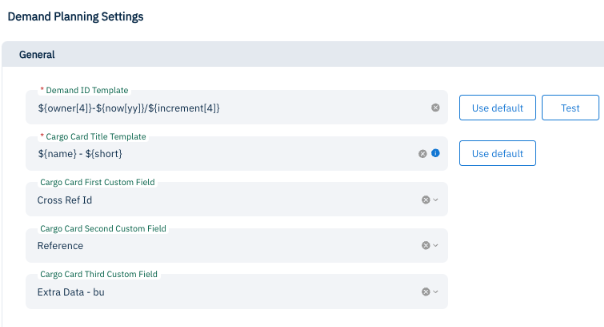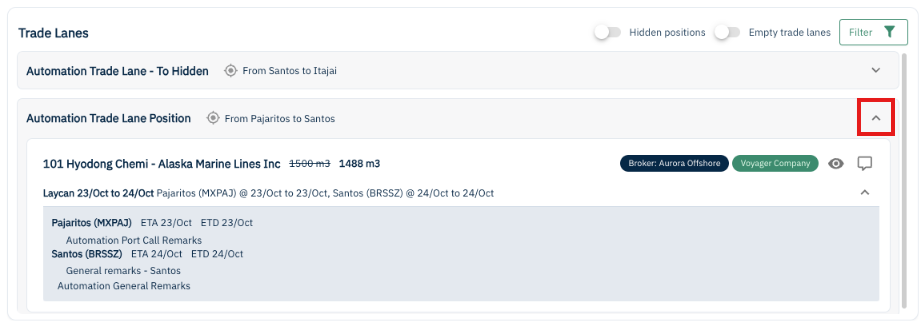The Demand Allocation module has been completely redesigned for a more powerful and flexible cargo planning experience.
Redesigned interface: Cleaner, collapsible cards let you see more data on one screen without losing context. Cargo demands and trade lanes can now be viewed together, making matching easier and faster.

Customizable views: Add reference fields such as Material Number or Internal Codes directly to cargo names. Each party can choose how cargo is labeled depending on their workflow needs.

Expandable trade lanes: Expand lanes to see vessel positions and voyage summaries with just one click.

Advanced filters: Multi-selection and combined conditions allow you to filter by ports, business units, or cargo groups, enabling precise scenario planning.

Direct integration: Cargo demands and trade lanes now link directly with vessel positions. Users can request updated vessel positions from brokers straight within the module, without leaving the screen.
Configurable tags: Choose which fields appear as quick “tags” on cards, making the most relevant information visible at a glance.

With this new UX, you can now better visualize cargo specifications and plan scenarios with greater accuracy and speed.
